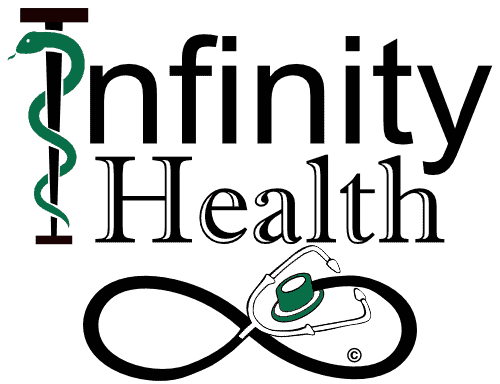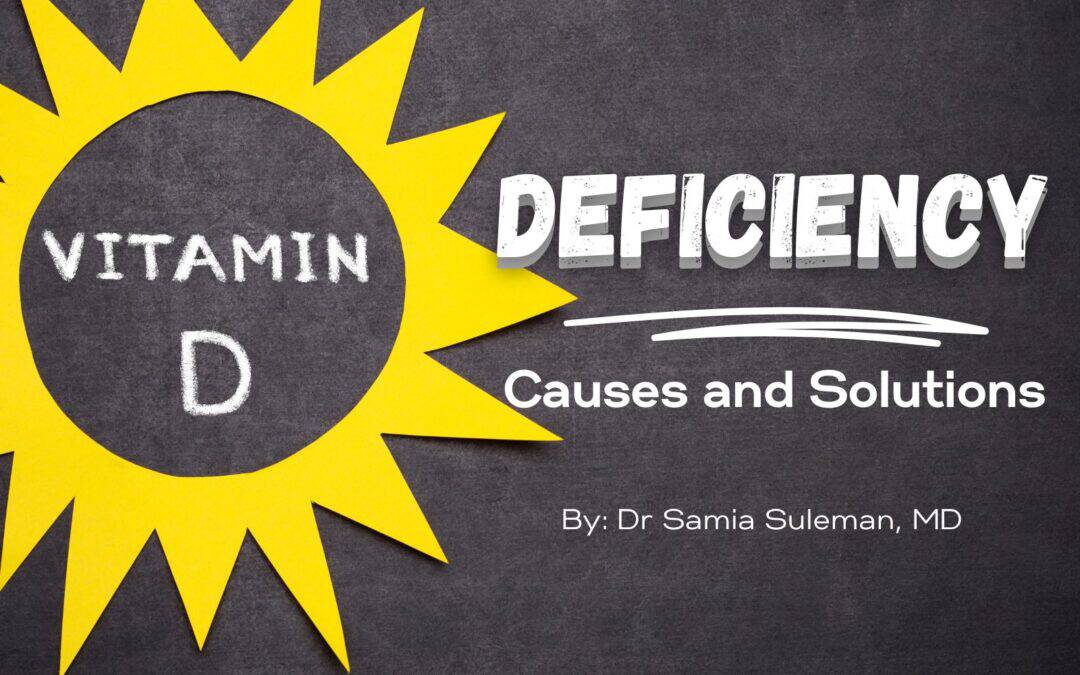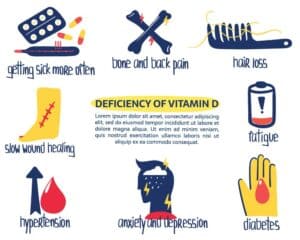Vitamin D is a crucial nutrient that plays a significant role in maintaining overall health. Deficiency in vitamin D can lead to various health issues, including weakened bones, increased susceptibility to infections, and impaired immune function. It is essential for calcium absorption, which is vital for bone health. Moreover, emerging research suggests that adequate levels of vitamin D may help reduce the risk of chronic diseases such as heart disease, diabetes, and certain cancers. Despite its importance, many individuals do not get enough vitamin D due to limited sun exposure, dietary choices, and certain health conditions. Therefore, raising awareness about vitamin D deficiency and its implications is vital for promoting better health practices.
Vitamin D deficiency can lead to several health issues. It is primarily associated with weakened bones, increasing the risk of conditions such as osteoporosis and rickets in children. A lack of vitamin D can also impair immune function, making individuals more susceptible to infections. Furthermore, emerging research indicates that vitamin D deficiency may be linked to an increased risk of chronic diseases, such as cardiovascular disease, diabetes, and certain types of cancer. Psychological effects, including depression and mood disorders, have also been observed in those with low vitamin D levels.
Foods rich in vitamin D include fatty fish such as salmon, mackerel, and sardines. Other sources are fortified dairy products like milk and yogurt, as well as fortified cereals and orange juice. Egg yolks also contain some vitamin D, although in smaller amounts. Additionally, mushrooms exposed to UV light can provide a plant-based source of vitamin D. Incorporating these foods into your diet can help improve your vitamin D levels and support overall health.
Vitamin D supplementation can be an effective way to increase vitamin D levels in individuals who are deficient or at risk of deficiency. Supplements are available in various forms, including vitamin D2 (ergocalciferol) and vitamin D3 (cholecalciferol), with the latter being more effective at raising and maintaining vitamin D levels in the body. It’s important to consult with a healthcare provider to determine the appropriate dosage, as excessive intake can lead to toxicity. Regular monitoring of vitamin D levels may also be recommended, especially for those on long-term supplementation.
Vitamin D deficiency can present with a variety of indicators, including:
- Fatigue and Weakness: Low vitamin D levels can lead to feelings of tiredness or general weakness, even with adequate rest.
- Bone Pain and Tenderness: Deficiency may cause aching or soreness in bones, particularly in the lower back, legs, or hips, as vitamin D is essential for bone health.
- Muscle Weakness or Cramps: Insufficient vitamin D can result in muscle weakness, difficulty climbing stairs, or general muscle aches.
- Frequent Infections or Illness: Vitamin D plays a crucial role in immune function, so a deficiency may lead to an increased susceptibility to infections, such as colds or flu.
- Depression and Mood Changes: Low levels of vitamin D have been linked to symptoms of depression, mood swings, and irritability.
- Hair Loss: Vitamin D deficiency may contribute to hair thinning or hair loss, particularly in conditions like alopecia areata.
- Slow Wound Healing: Individuals with low vitamin D levels may experience delayed wound healing after injury or surgery due to its role in immune function and tissue repair.
- Bone Deformities or Softening: In severe cases, vitamin D deficiency can lead to conditions like rickets in children or osteomalacia (softening of bones) in adults, leading to bone deformities or increased fracture risk.
If you experience any of these symptoms after improving your diet with fatty fish, fortified dairy products or a vitamin D supplement, it’s important to consult a healthcare provider to assess your vitamin D levels and determine the best course of action.
A doctor can detect vitamin D deficiency through the following methods:
- Blood Test (25-hydroxyvitamin D test): This is the most common and reliable method to measure vitamin D levels in the blood. It measures the concentration of 25-hydroxyvitamin D, the form of vitamin D circulating in the bloodstream. A level below 20 ng/mL is typically considered deficient, while levels between 20-30 ng/mL may be considered insufficient.
- Physical Examination: In some cases, a doctor may assess signs of vitamin D deficiency through a physical exam. Symptoms like bone tenderness, muscle weakness, or difficulty walking may indicate a deficiency.
- Bone Density Test: If a doctor suspects bone health issues related to low vitamin D levels (such as osteoporosis), they might recommend a bone density scan to evaluate the strength of the bones.
- Medical History and Symptoms Review: Doctors will often review a patient’s medical history and symptoms, such as fatigue, frequent infections, bone pain, or muscle weakness, which could indicate vitamin D deficiency.
- Risk Factor Assessment: The doctor may ask about lifestyle factors that increase the risk of vitamin D deficiency, such as limited sun exposure, a diet low in vitamin D, obesity, certain medical conditions, or medications that affect vitamin D metabolism.
At Infinity Health DPC, we’re dedicated to helping you achieve optimal health with personalized care tailored to your unique needs. Whether you’re managing a chronic condition, seeking a routine physical, or exploring preventative health options, our direct primary care approach ensures you get the attention and support you deserve.
Ready to take control of your health? Contact Infinity Health today to schedule a consultation and experience healthcare that puts you first. Your well-being is our priority!





